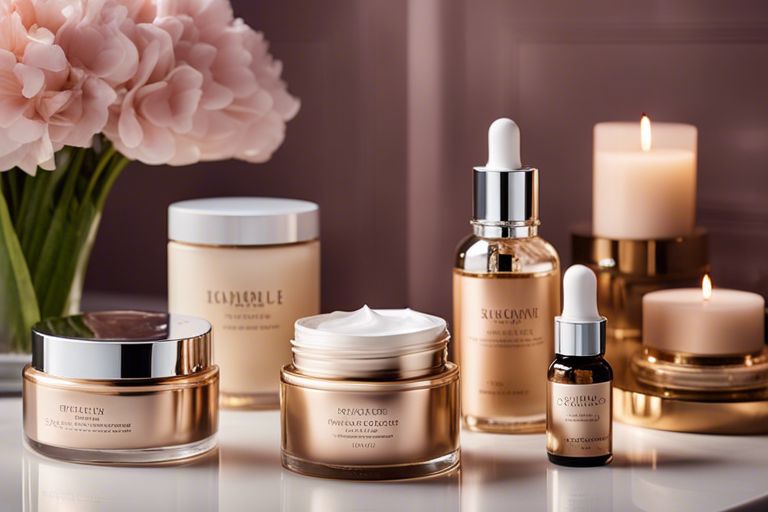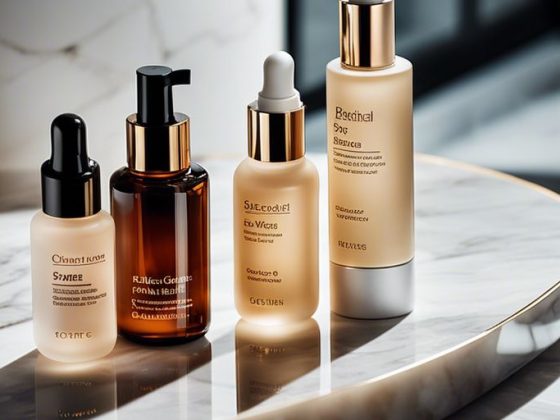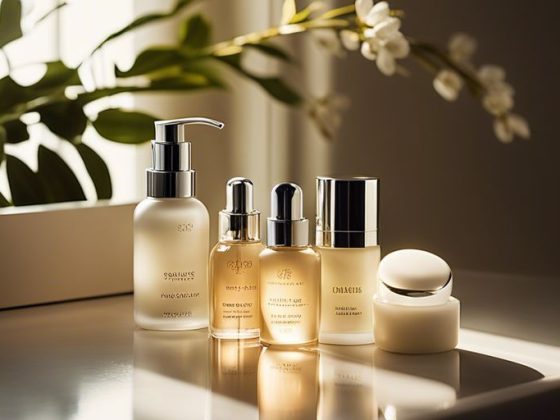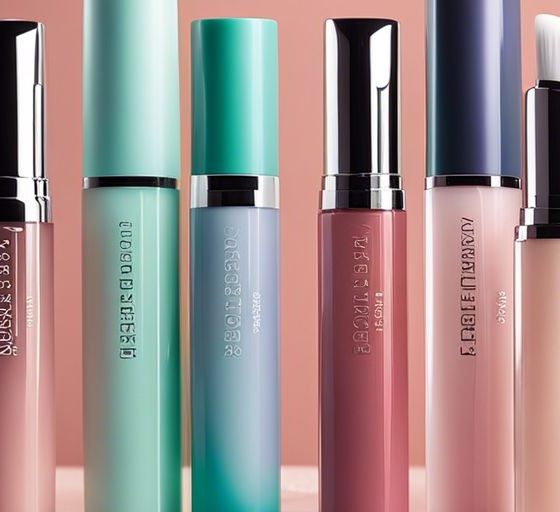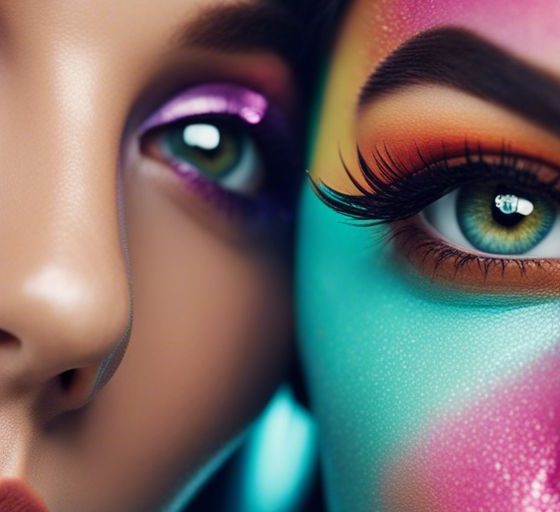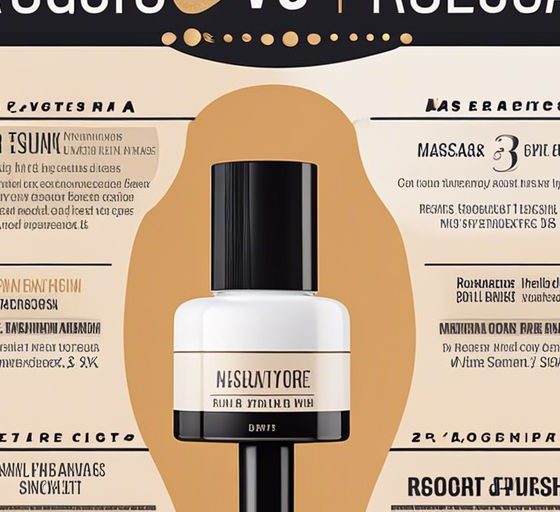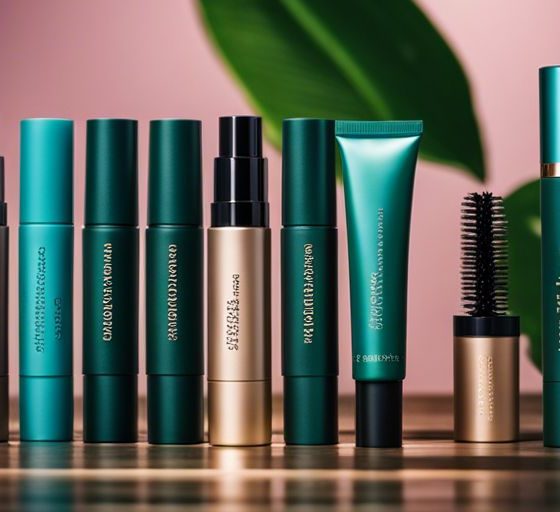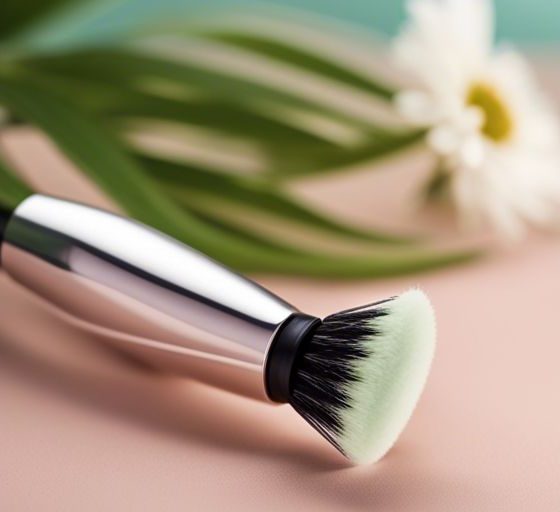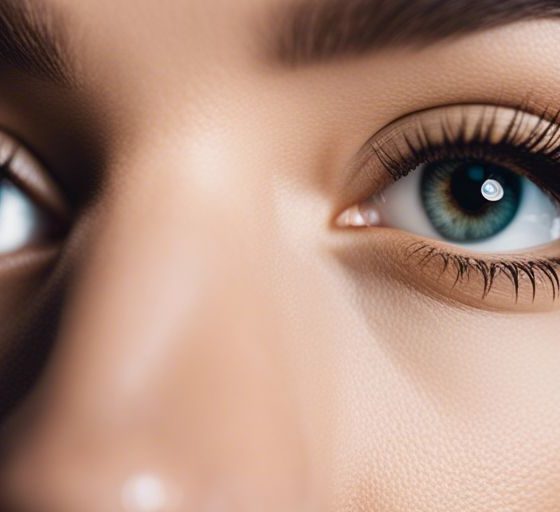Most people strive to maintain a youthful appearance and combat the signs of aging. With the plethora of anti-aging skincare products available on the market, it can be overwhelming to navigate which ones are best suited for your skin. It is crucial to understand the importance of incorporating the right anti-aging products into your skincare routine to see positive results and avoid any dangerous side effects.

Understanding the Aging Process
The Science of Skin Aging
For centuries, humans have been fascinated by the aging process and its impact on the skin. As we age, our skin undergoes various changes that can be attributed to a combination of intrinsic and extrinsic factors. Intrinsic aging, also known as natural aging, is determined by genetics and involves the gradual loss of collagen and elastin, leading to the formation of wrinkles and sagging skin. On the other hand, extrinsic aging is primarily caused by external factors such as UV exposure, pollution, and lifestyle choices like smoking and poor diet.
External vs. Internal Aging Factors
While genetics play a significant role in how our skin ages, external factors can accelerate the process and lead to premature aging. UV radiation from the sun is one of the most damaging external factors, causing photoaging characterized by wrinkles, hyperpigmentation, and loss of skin elasticity. Other external factors like pollution and smoking can also contribute to the breakdown of collagen and elastin fibers, leading to the formation of fine lines and wrinkles.
- UV Exposure – UV rays can damage the skin’s DNA, leading to premature aging and an increased risk of skin cancer.
- Pollution – Environmental pollutants can generate free radicals that accelerate skin aging and cause inflammation.
- Lifestyle Choices – Smoking and a poor diet can deprive the skin of important nutrients and contribute to the development of wrinkles.
After understanding the impact of external factors on skin aging, it’s important to also consider internal aging factors such as hormonal changes and oxidative stress. Hormonal fluctuations, particularly in women during menopause, can lead to a loss of collagen and skin dryness. Oxidative stress, caused by an imbalance between antioxidants and free radicals, can accelerate skin aging by causing cellular damage and inflammation.
Assessment of Skin Type and Aging Concerns
Determining Your Skin Type
Some of the key factors to consider when determining your skin type include the level of oiliness or dryness, sensitivity, and susceptibility to acne. To accurately assess your skin type, cleanse your face with a gentle cleanser and observe how your skin feels a few hours later. Oily skin will have a shine, dry skin may feel tight or flaky, while combination skin will have both oily and dry areas.
Identifying Your Skin’s Aging Signs
Some visible signs of skin aging include fine lines, wrinkles, sagging skin, uneven tone, and age spots. The earlier you identify these signs, the better you can address them with targeted anti-aging skincare products. The development of these signs can vary based on factors like genetics, sun exposure, lifestyle choices, and skincare routine.
The identification of these signs is crucial in preventing and correcting age-related changes in the skin. Understanding when and how these signs appear can help you choose the right products and routines to maintain a youthful complexion. It is important to consult with a skincare professional if you are unsure about your skin type or aging concerns.

Key Ingredients in Anti-Aging Skincare
Retinoids: The Gold Standard
On the quest for youthful skin, retinoids stand out as the gold standard in the world of anti-aging skincare. These powerful derivatives of vitamin A are loved for their ability to stimulate collagen production, promote cell turnover, and reduce the appearance of fine lines and wrinkles. By accelerating skin cell regeneration, retinoids can help improve skin texture and reveal a smoother, more radiant complexion.
Antioxidants: The Shield Against Free Radicals
With antioxidants, your skin gains a powerful defense against environmental aggressors like pollution and UV rays. These skin-loving ingredients work by neutralizing free radicals, unstable molecules that can cause damage to the skin cells, leading to premature aging. Antioxidants like vitamin C, vitamin E, and green tea extract not only protect the skin but also brighten the complexion, leaving it looking more youthful and revitalized.
For instance, vitamin C is known for its brightening properties and ability to improve the skin’s natural healing process, while vitamin E helps nourish and protect the skin from oxidative stress.
Peptides: The Building Blocks of Skin
Any anti-aging skincare routine is incomplete without peptides, the imperative building blocks of skin. Peptides are short chains of amino acids that help stimulate collagen production, improve skin elasticity, and reduce the appearance of wrinkles. By incorporating peptides into your skincare regimen, you can support the skin’s natural repair process and maintain a firm, youthful complexion.
Blocks of collagen. These powerhouse ingredients can help address a range of skincare concerns, from fine lines and wrinkles to loss of firmness and elasticity.
Sunscreen: Preventing Premature Aging
Against premature aging, sunscreen is your best defense. Sunscreen helps protect the skin from harmful UVA and UVB rays, which can cause sun damage, wrinkles, and age spots. By incorporating a broad-spectrum sunscreen with an SPF of 30 or higher into your daily skincare routine, you can prevent premature aging and maintain a youthful complexion for years to come.
Ingredients in sunscreen. Look for formulas that offer broad-spectrum protection and are water-resistant to ensure maximum efficacy.
Creating Your Anti-Aging Skincare Routine
The Order of Application
Your anti-aging skincare routine should be comprised of various products that you apply in a specific order to maximize their effectiveness. Start with cleansing your face to remove any impurities, followed by a toner to balance the skin’s pH levels. Next, apply serums with active ingredients like retinol or vitamin C to target specific skin concerns. Moisturize to hydrate and seal in the products, and finish with sunscreen to protect your skin from harmful UV rays.
Morning Regimen Essentials
When considering your morning anti-aging skincare regimen, incorporating products with antioxidants is important to protect your skin from environmental damage. Sunscreen is a non-negotiable step in preventing premature aging and safeguarding against UV-induced skin damage.
Understanding the importance of morning skincare is key in maintaining healthy and youthful skin. By applying antioxidant-rich products and sunscreen daily, you are actively protecting your skin from external aggressors and preventing future signs of aging.
Nighttime Routine for Repair and Regeneration
At night, your skincare routine shifts to focus on repair and regeneration. Cleansing your skin thoroughly is crucial to remove makeup, sunscreen, and any accumulated dirt throughout the day. Using a quality night cream or serum with ingredients like retinol or peptides can help stimulate collagen production and promote cell turnover while you sleep.
Morning skincare is crucial, but nighttime is when your skin does most of its regeneration and repair work. By incorporating products that support this natural process, you can wake up with rejuvenated and refreshed skin.
Weekly Treatments to Enhance Results
This is the time to amp up your anti-aging skincare routine with specialized treatments like masks, exfoliants, or facial oils. These products can target specific concerns such as fine lines, hyperpigmentation, or loss of elasticity, enhancing the overall effectiveness of your skincare routine.
Your weekly treatment routine should be tailored to your skin’s needs and concerns, providing a deeper level of care and addressing specific issues that may not be fully resolved by your daily skincare regimen alone.
Treatments are a crucial component in achieving optimal results in your anti-aging skincare routine. By incorporating targeted products on a weekly basis, you can address specific concerns and enhance the overall health and appearance of your skin.
Advanced Anti-Aging Treatments
- Professional Treatments vs. At-Home Options:
Professional Treatments At-Home Options Professional dermatologist-administered treatments such as chemical peels, microdermabrasion, and laser therapy offer immediate results. Over-the-counter products like retinol creams, vitamin C serums, and exfoliants provide gradual improvement with consistent use.
Professional Treatments vs. At-Home Options
Professional anti-aging treatments can target specific skin concerns more effectively, while at-home options are more convenient and cost-effective in the long run. It is necessary to consult with a skincare professional to determine the best approach for your individual needs and goals. Be mindful of, combining professional treatments with a consistent at-home skincare regimen can yield the best results.
Incorporating Technological Devices in Skincare
Treatments incorporating technological devices in skincare, such as LED light therapy, microcurrent devices, and radiofrequency machines, have gained popularity in the anti-aging realm. These devices can enhance the penetration and efficacy of skincare products, stimulate collagen production, and improve skin elasticity. However, it is crucial to use these devices carefully and follow instructions to avoid adverse effects.
Another important consideration when incorporating technological devices in your skincare routine is to ensure they are FDA-approved and suitable for your skin type. Seek guidance from a dermatologist or esthetician to maximize the benefits of these advanced anti-aging treatments while minimizing the risks.

Lifestyle Considerations for Youthful Skin
Diet and Nutrition for Healthy Skin
One of the key factors in maintaining youthful skin is having a balanced diet rich in nutrients that support skin health. Foods high in antioxidants, such as fruits and vegetables, can help combat free radicals that contribute to the aging process. Essential fatty acids found in foods like salmon and avocados can also help keep the skin supple and hydrated.
Impact of Sleep and Exercise on Aging
Youthful skin is often a reflection of good lifestyle habits, including adequate sleep and regular exercise. Lack of sleep can lead to increased stress levels, which in turn can accelerate the aging process. Exercise, on the other hand, helps improve blood circulation, which can result in a more youthful appearance as it delivers important nutrients to the skin.
Impact: Adequate sleep and regular exercise are crucial in maintaining youthful skin. Lack of sleep can lead to increased stress levels, which can accelerate the aging process. Exercise helps improve blood circulation, delivering important nutrients to the skin and promoting a more youthful appearance.
Stress Management and Skin Health
Any guide to anti-aging skincare should include stress management techniques as stress can have a significant impact on skin health. Chronic stress can lead to inflammation, breakouts, and premature aging. Incorporating relaxation techniques such as meditation, yoga, or mindfulness can help manage stress levels and promote healthy skin.
This underscores the importance of stress management in a skincare routine. By incorporating relaxation techniques, individuals can reduce stress levels, prevent inflammation, breakouts, and premature aging, ultimately promoting healthier and more youthful-looking skin.
The Ultimate Guide To Incorporating Anti-Aging Skincare Products
Debunking Common Anti-Aging Skincare Myths
To debunk common anti-aging skincare myths, it’s crucial to separate fact from fiction. One common misconception is that the more expensive a product is, the better it will work. In reality, price doesn’t always reflect effectiveness as there are many affordable options that deliver exceptional results. Another myth is that you need to start using anti-aging products only when you see visible signs of aging. Prevention is key in anti-aging skincare, and starting a good routine early can help maintain youthful skin for longer.
Understanding Product Marketing and Labels
With so many anti-aging products on the market, understanding product marketing and labels is necessary. Terms like “clinically proven” or “dermatologist recommended” can be misleading, as they may not always guarantee effectiveness. It’s important to look beyond the buzzwords and focus on the active ingredients in the product. Reading the ingredient list and understanding how each component benefits your skin is crucial in making informed choices when selecting anti-aging products.
Skincare
Final Words
Conclusively, incorporating anti-aging skincare products into your daily routine is vital for maintaining youthful and healthy-looking skin. By following the ultimate guide outlined in this article, you can effectively address signs of aging such as wrinkles, fine lines, and dark spots. Remember to choose products with high-quality ingredients, use them consistently, and consult with a dermatologist for personalized recommendations if needed.
With the right approach and dedication, you can achieve noticeable improvements in your skin’s appearance and texture over time. Embrace the power of anti-aging skincare products and make them a pivotal part of your beauty regimen for radiant and youthful skin that glows with vitality.
FAQ
Q: Why is it important to incorporate anti-aging skincare products into my routine?
A: Anti-aging skincare products help protect the skin from environmental damage, reduce the appearance of fine lines and wrinkles, and promote a more youthful complexion.
Q: At what age should I start using anti-aging products?
A: It is recommended to start incorporating anti-aging skincare products in your late 20s to early 30s as a preventive measure to maintain skin health and youthfulness.
Q: What are some key ingredients to look for in anti-aging skincare products?
A: Ingredients like retinol, hyaluronic acid, vitamin C, peptides, and ceramides are effective in combating signs of aging and promoting skin renewal.
Q: How should I layer anti-aging products in my skincare routine?
A: Start with cleansing, then apply lighter products like serums before heavier ones like creams. Always finish with sunscreen during the day to protect against UV damage.
Q: Can I use multiple anti-aging products together, and if so, how do I do it effectively?
A: Yes, you can use multiple anti-aging products, but be cautious of potential interactions. Introduce one product at a time to monitor skin reactions and give each product time to work before adding another one.
